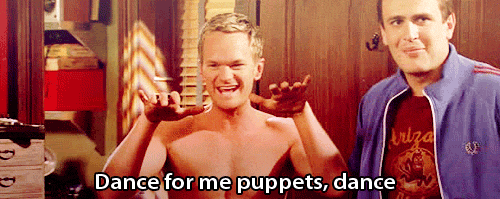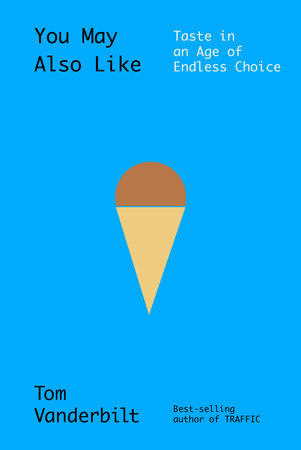You May Also Like attempts to fathom the question of why people like what they like. Before reading this book, you’d probably answer “It’s complicated.” But after you read it? You’ll, um, you’ll still say it’s complicated. Human brains are complicated organs, and we are just not very good at understanding them.
When I’m reading pop sciencey sorts of books, I am on a hair trigger with regard to bullshit neuroscience of the type that Cordelia Fine has conditioned me to be on a hair trigger w/r/t; i.e., that thing where it’s like “the same part of your brain lights up when you’re scared as when you eat a new type of vegetable, so you must be scared of new vegetables!”1 I am happy to report that with a few minor and rare exceptions, Vanderbilt steers clear of this sketchy business. He is less interested in neurological explanations for taste than in talking to people whose work it is to figure out the whys and hows.
As you can probably guess if you live in this world, many of the people researching taste are doing it so that they can make more and better algorithms to predict what you will like if you already like X. Or so they can find ways to make you like Y if you are not currently a Y-liker.

That second thing is of particular interest to me! Vanderbilt finds that framing makes a huge difference (duh): If you already know you don’t like country music, you are less likely to enjoy a song if someone says “hey listen to this song by Garth Brooks” than if you encounter a Garth Brooks song, stripped of context, as the background to a movie or commercial you enjoy. Social context matters too (also duh): When you see other people liking a thing, you’re more likely to like the thing yourself. Plus, if other people around you like a thing and your experience of the thing broadens, you are even likelier still to start liking the thing, because familiarity is a good predictor of developing liking.
(Cf my Stockholm syndrome re: radio-frequent songs including but not limited to Nick Jonas’s “Jealous” and One Republic’s “Counting Stars.”)
He also discusses the role of error in the way our tastes change, which is something that had never occurred to me. For instance, some irregular verbs have become regular over time, mainly verbs we don’t use that much.
Why? Because the irregular verbs we hardly ever encounter are the ones whose irregular forms we are least likely to remember, hence we convert them, through error, into regular verbs.
Interesting, right? So now we have “thrived” instead of “throve,” but “drove” is still the past tense of “drive.” Take that, prescriptivists!
If you are looking for final conclusions about what makes a person like a thing, You May Also Like doesn’t have a lot of answers. But if you just want to learn about the many factors that go into making personal taste, by spending time with the people who spend their time thinking about that, this is a fun and readable exploration of those worlds.
Jill at Rhapsody in Books also reviewed this. Let me know if you did, too, and I’ll add a link!
- This is what we call affirming the consequent. If you float and wood floats, that doesn’t mean you are actually made of wood. ↩
